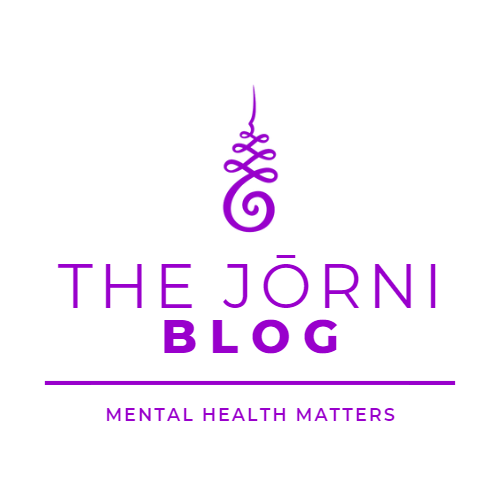Trauma and Its Effects
In this post, we share an amazing woman’s personal journey of surviving trauma and abuse and finding her voice. Some readers may be triggered by this content and reader discretion is advised.
Trauma is a response to a deeply distressing or disturbing event. This response can be both emotional and physical. And it can be caused by any experience that surpasses our ability to cope with it. We think of major trauma like physical or sexual abuse, natural disasters, or witnessing violence. But, trauma can also include events like a bad break-up, losing your job, or having an accident. Trauma can leave deep physical and psychological scars in its wake and survivors can spend their whole life healing from traumatic events.
On the podcast this week, I interviewed trauma and abuse survivor, Terina Maldonado. Her harrowing personal story spans from childhood into adulthood. She is an inspiration to survivors everywhere, for finding her voice and reclaiming her life.
Her journey has been anything but easy; however, Terina was determined to heal through her trauma.
As Terina’s story highlights, it is so important to heal from trauma in order to move forward and live a healthy, fulfilling life. Suppressing the effects of trauma can lead to ongoing emotional and physical problems, and can prevent you from reaching your full potential. Trauma is complex and everyone’s healing journey is different.
“Trauma creates change you don’t choose. Healing is about creating change you do choose.”
- Michelle Rosenthal
In this post, we will explore trauma and what healing from trauma could look like. I encourage you to pop over to the podcast for show notes and more details about Terina. And if you are experiencing trauma or are a trauma survivor, I hope Terina’s story will give you hope for the future.
Healing from Trauma
If you want to move forward and live a happy, healthy, and productive life, recovery from trauma is essential. Traumatic experiences have the potential to have disastrous effects on physical and mental health, relationships, and well-being. Healing from trauma can begin the development of healthy responses to stress and emotional distress. Feeling more in control of your life has been shown to improve both mental and physical well-being.
One of the benefits of healing through trauma is the chance to reconnect with loved ones. The effects of trauma are often felt as a sense of isolation and a lack of trust in others. However, with support, survivors have a better chance of working through these experiences and establishing and maintaining meaningful relationships.

An important part of recovering from trauma is coming to terms with what happened. Recognizing the influence that traumatic experiences have had on your life may require you to look at the source of the trauma. Keeping a journal or writing down your thoughts and feelings about the traumatic event can be a helpful way to process your feelings and gain perspective on what happened.
The process of introspection and self-examination can also aid in making sense of your experience with trauma. In order to get in touch with your thoughts and feelings, a therapist or counselor might be helpful. You can also try some relaxation techniques like yoga or meditation. In addition, it can be beneficial to examine any thoughts or ideas that may have an impact on your healing journey.
Bear in mind that your traumatic event is unique to you, and that it's good to take your time processing it. Although it might be difficult and emotional, it is often necessary for closure and progress.
Working with a Trauma Therapist
Recovering from traumatic experiences is facilitated by therapy and counseling in a number of ways. The first benefit of therapy is that it provides a safe, judgment-free environment in which to share your thoughts and feelings regarding the trauma. If you have not yet had the courage to talk to anybody about your trauma, or if you are concerned that you will be judged or misunderstood, this can be a great option.
Understanding how the traumatic experience has affected your life and how you feel about it is another goal of therapy. Examining your assumptions and thought processes, as well as your coping mechanisms, can help. Anxiety and flashbacks are only two examples of the trauma symptoms that can be alleviated with the help of a therapist. Methods like EMDR (Eye Movement Desensitization and Reprocessing) and CBT (Cognitive Behavioral Therapy) can be quite useful.

Seeing a therapist who has had training in trauma healing is crucial. Because each person reacts differently to trauma, it's important to find a therapist who specializes in treating trauma so they can assist and guide you through the healing process.
Finding a therapist with experience in trauma treatment might be challenging, depending on where you live. If you feel safe, connecting with a therapist who provides online sessions could be helpful. Check the therapist's background and qualifications before you book a session.
And find someone who has worked with trauma survivors before and has received specific training in this field. Each therapist may use a slightly different approach, so it is important they match what you are comfortable with. Their background may include, for instance, working with survivors of abuse, serving in the armed forces, or helping those who have endured natural disasters.
TRAUMA Self-care and coping strategies
Healing from traumatic experiences can also include a focus on self-care. Healing requires attention to one's whole self, including one's physical, emotional, and mental health.
- Make sleep a priority. Getting proper rest and giving yourself time to rest and heal is crucial after experiencing trauma. You want to give yourself time and space for healing any physical and mental symptoms.
- Maintain a balanced diet. In order to aid in the recovery of your body and mind, it is important to maintain a balanced diet.
- Move. Getting regular exercise is a great way to improve your physical and mental health and combat the negative effects of stress.
- Learn how to unwind and apply these skills. Taking some time off for deep breathing, meditation, or yoga can do wonders for your health and stress levels.
- And look for help. In some cases, self-care requires the help of others, therefore it's important to establish a network of friends and family. If you want to feel less alone and more connected, surround yourself with individuals you love and trust, who can provide emotional support.

The effects of trauma can be managed using a number of different holistic approaches. The benefit is you can use these approaches any time you feel you need them.
Deep breathing is an effective method for alleviating stress and anxiety. It works by decreasing your pulse rate and soothing your mind. Progressive muscle relaxation is another approach you may want to try. It works through tensing and relaxing various muscular groups.
Mindfulness meditation means accepting one's thoughts and emotions as they are without judgment. Your mental and physical wellbeing can benefit from mindfulness practices or mindfulness-based stress reduction.
GRIEF AND TRAUMA
Not everyone experiences grief as a result of trauma, but it can certainly happen. Grief can be complex and emotional, involving feelings like sadness, helplessness, anger, and guilt. There is no right way to grieve and everyone's grieving journey is unique and deeply personal. Traumatic experiences can trigger feelings of grief and loss at the time of the event, or even months and years later.

Give yourself permission to experience emotion. It is essential to give yourself permission to feel and express your emotions, no matter how challenging or unpleasant they may be. You can do this by sharing your thoughts and feelings with a trusted friend or loved one, keeping a journal, or consulting a professional therapist.
Keep yourself in good health. Taking care of your health, both mental and physical, should be a top priority during grieving. This can include things like getting adequate sleep, eating right, and doing things that make you happy.
Seek help. Part of coping with loss is finding support in the company of friends and family. When you're struggling, reaching out for assistance can be the most difficult thing you do, but it can be immensely helpful.
Learn to deal with stress in a constructive way. When you experience grief, it might be good to find constructive ways to deal with your feelings. Some suggestions include doing things that fulfill you and make you happy, learning to self-soothe, and exploring healthy ways to manage and release your emotions.
Consult a therapist. Talking to a therapist or counselor can assist if you feel you are not able to cope or heal through your grief on your own. You can share your feelings in confidence, and they can offer advice and comfort as you begin your healing journey.
TRAUMA AND FORGIVENESS
Although it may be difficult and emotional, forgiving oneself and others who contributed to the trauma is a crucial step in the healing process. By letting go of negative feelings like anger and resentment, you can free yourself from the tight hold trauma has on your life. Forgiveness does not mean forgetting or condoning what happened. It means disconnecting yourself from the negative emotions associated with your trauma, so you can begin to heal.
Give yourself time to think about how you feel about the traumatic event and the individuals connected to it. Some examples of this would be talking to a trusted friend or loved one, visiting a therapist, or keeping a journal. Through this process, you can begin to forgive yourself. Treat yourself with kindness and compassion at all times. And keep in mind that you have the right to feel sad or angry, and that healing takes time.

Thinking or journaling about what you believe about forgiveness and how it can affect your ability to forgive yourself or others is a good place to start. You might want to add some of the self-care approaches mentioned above, like meditation, journaling, or sharing with someone you trust.
To get support while working on forgiveness, be sure to gather a group of loved ones and friends to lean on. They can be a crucial part of letting go and forgiving. There will be times when you struggle and question why you are on this journey. Your support system can help you during these times and remind you of their love and support. Embrace the process of forgiveness and have patience with yourself. It will take time and energy to forgive yourself and be able to heal through your trauma.
The Takeaway
It's important to take the time to heal from traumatic experiences so you can move forward with your life and enjoy the healthiest, most fulfilled version of it possible. Healing from trauma is a complex and individual process. Probably one of the most difficult things will be managing and healing your trauma’s mental, physical, and emotional aftereffects.
Remember that recovering from trauma is a process that will take time. Since this is not a linear process, you can expect some ups and downs. Some days you might even feel like you are taking some steps backwards. Feelings of anger, shame, and guilt are all perfectly natural, and so is taking your time and moving at your own speed.

Keep in mind that trauma also brings the possibility of recovery. Finding peace and moving forward is possible; Terina's experience is proof of that. However, it will take time, personal work, and maybe even help from your support system.
Therapy, counseling, self-care routines, and social and emotional support from loved ones are just some of the tools at your disposal to help with the healing process.
It can also help to connect with other trauma and abuse survivors. Meeting people who can relate to your situation can help you feel less alone and more supported. You have access to a wide variety of in-person and virtual support groups.
Move at your own pace and try different ways of healing your trauma. Healing will look different for every person and it is important you find what works for you. Whatever you feel comfortable with will likely be most helpful in your healing journey.
As Terina mentions, trauma and abuse are perpetuated by secrecy. However, once you break the secrecy, you have taken a hugely important step toward healing from trauma.

